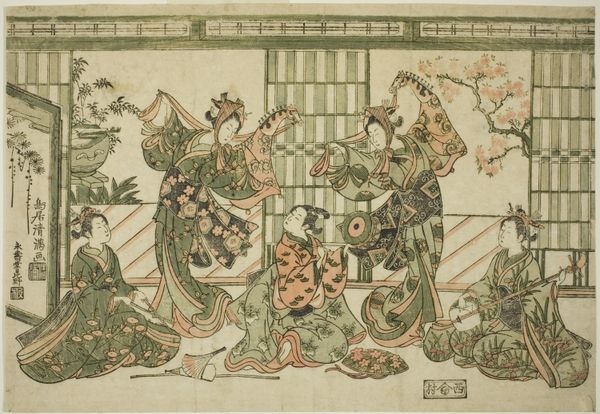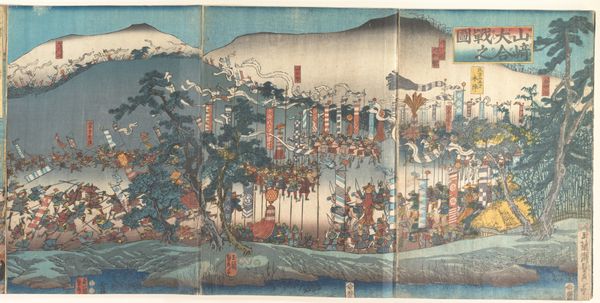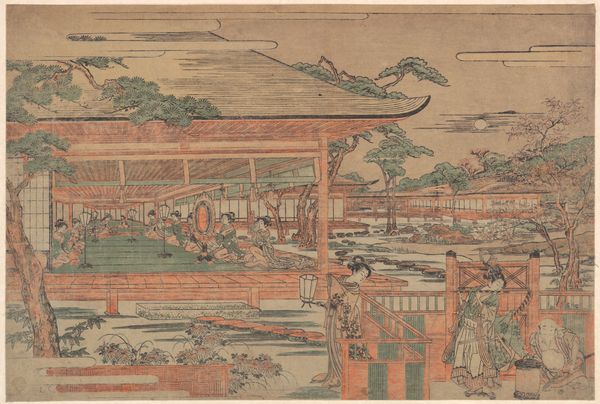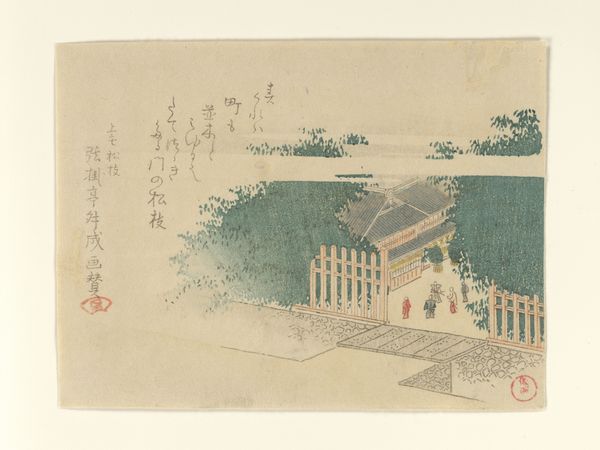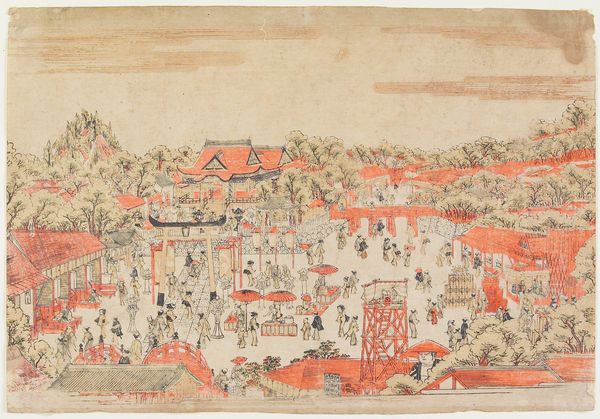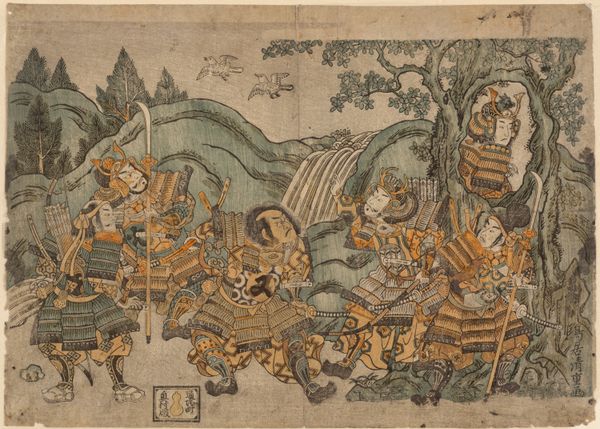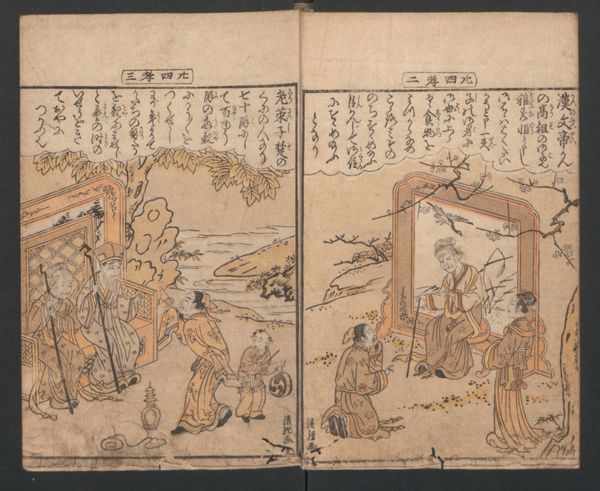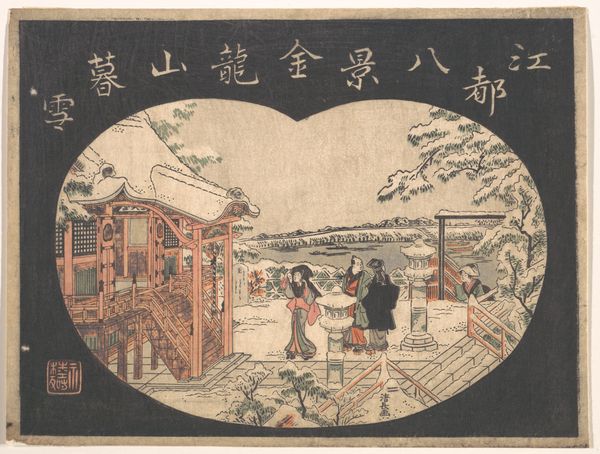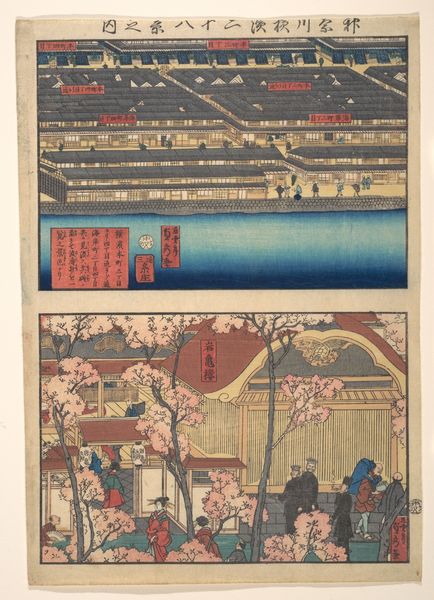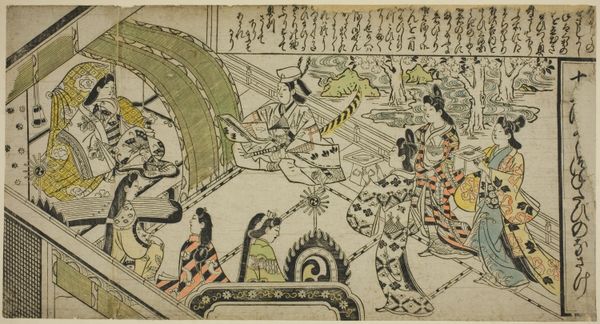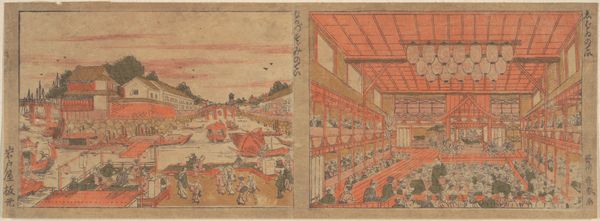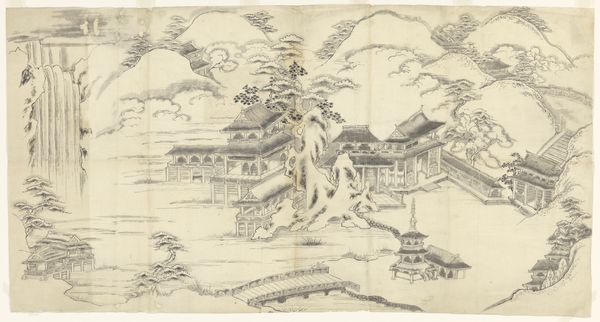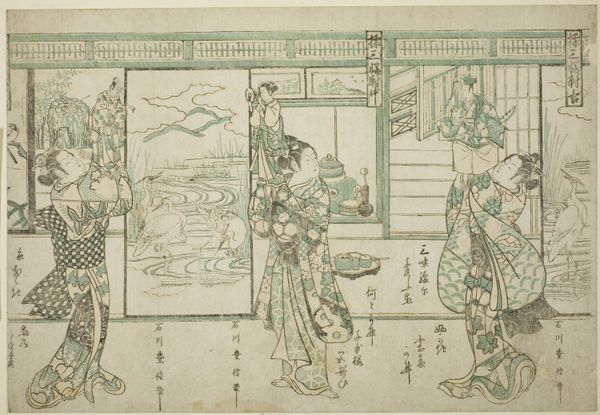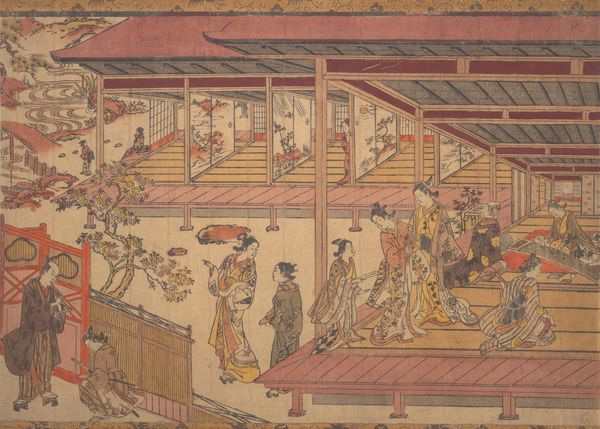
print, woodblock-print
# print
#
asian-art
#
landscape
#
ukiyo-e
#
woodblock-print
#
watercolor
Dimensions: height 137 mm, width 171 mm
Copyright: Rijks Museum: Open Domain
Utagawa Toyoharu created this woodblock print depicting the Inari Shrine in Ōji, and offers a glimpse into Japan's Edo period. This was a time of relative peace and prosperity under the Tokugawa shogunate, which led to a flourishing of urban culture and arts. Here, Toyoharu captures a bustling scene, filled with people from various walks of life, approaching the sacred space. The Inari shrine, dedicated to the god of rice and prosperity, was a focal point of community life. The print offers a sense of the spiritual importance of this place. The artist's choice to depict this everyday scene is fascinating because it provides a snapshot of the socio-cultural values of the time. We can see how religion, community, and commerce were interwoven in the lives of the people. The composition, with its balanced use of space and detail, invites us to reflect on the enduring human need for connection. This print gives us a window into a specific time and place but also speaks to broader themes of identity, belief, and belonging.
Comments
No comments
Be the first to comment and join the conversation on the ultimate creative platform.
